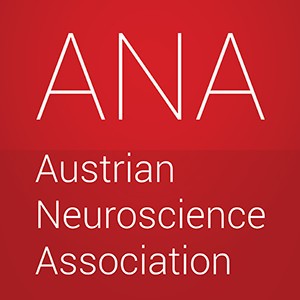Institute of Systems Neuroscience
Systems Neuroscience: From cognition to neurological disorders
Neural circuits are the intricate networks of interconnected neurons that form the foundation of brain function. These circuits enable the brain to process information, make decisions, and adapt to changing environments. Research by the labs of Sabine Liebscher, Johannes Passecker and Rüdiger Schweigreiter strives to understand how these circuits operate in both health and disease.

Circuit Dysfunction in Neurological Disorders
While neural circuits are central to normal brain function, their disruption underlies many neurological disorders. The Liebscher Lab focuses on unraveling the cellular and circuit mechanisms that contribute to central nervous system (CNS) disorders such as amyotrophic lateral sclerosis (ALS), Alzheimer’s disease, Spinocerebellar Ataxia and autoimmune encephalitis. Using cutting-edge in vivo imaging, circuit mapping, proteomic/transcriptomic analyses and chemogenetic manipulation, the lab investigates how molecular and cellular changes translate into network dysfunction and clinical symptoms. With our recent work, we could furthermore demonstrate that altered circuit function based on abnormal neuronal activity can drive the neurodegenerative process, opening up novel therapeutic ‘circuit-level’ targets.

Neural Circuits in Decision Making
Decision making is a fundamental cognitive process that relies on the dynamic interplay of neural circuits across various brain regions, including the prefrontal and parietal cortices. These circuits integrate sensory inputs, accumulate evidence, and ultimately lead to categorical choices through mechanisms such as slow synaptic reverberation and attractor dynamics. Recent advances have shown that both direct corticocortical and cortico-thalamo-cortical pathways play essential roles in perception and flexible decision behavior, allowing organisms to adapt to complex and uncertain environments. By monitoring and manipulating these circuits in animal models, the Passecker lab aims to reveal the cellular and network mechanisms underlying adaptive choice behavior.how these circuits operate in both health and disease.

The periphery matters too
Rüdiger Schweigreiter‘s research centers on the cellular and molecular mechanisms of axonal regeneration in the adult peripheral nervous system. His work aims to improve sensory and motor recovery after major nerve injuries by identifying and characterizing the molecular players that govern axonal outgrowth, long-distance growth, and sprouting following nerve lesions.
Bridging Physiology and Pathology
By integrating approaches from systems neuroscience, molecular biology, and clinical research, the labs of Sabine Liebscher, Johannes Passecker and Rüdiger Schweigreiter aim to identify circuit elements that can serve as early biomarkers or therapeutic targets. Their research not only advances our understanding of how neural circuits support complex behaviors like decision making but also sheds light on how their dysfunction leads to debilitating neurological diseases. This knowledge is paving the way for innovative strategies to diagnose, monitor, and ultimately treat CNS disorders at the level of neural circuits.








